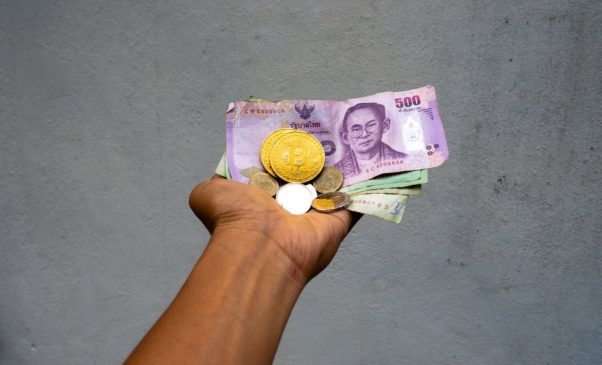In 2014, the Revenue Department of Thailand had arrested many individuals and investigated about 60 companies for defrauding the department out of $18.29 million worth of baht in value-added taxes (VAT). Since and before, the department has been unable to track a majority of such tax defaulters, losing billions of dollars in the process.
So could blockchain be the solution that could minimize tax frauds? The director-general of the Revenue Department believes it can.
Ekniti Nitithanprapas, in his latest comments to the Bangkok Post, revealed that their department is conducting a blockchain trial to explore its use case in tracking VAT payments. The tax compliance officer recognized that there was an increase in the number of cases that involves fake VAT invoices. He said that they have set up a particular innovation lab to test blockchain’s potential in minimizing such cases while drawing inspirations from its use-case in the verification of bitcoin transactions.
“The blockchain is expected to help verify VAT invoices which would help root out fake invoices for VAT claims,” Nitithanprapas said. “For example, when a company buys products from a second company, the former will issue VAT invoices to the latter, and both firms can use blockchain to confirm the transactions.”
Blockchain Marries Tax Auditing
Since its launch, blockchain has outpaced other emerging technologies regarding both hype and investment-influx. The enterprises and government bodies, in particular, have shown interests in adopting the technology mainly to make use of its core attributes, which are transparency, security, and real-time information.
PwC, one of the Big Four auditors, has also recognized blockchain for detecting errors and frauds in tax filing more efficiently than traditional systems, stating:
“Blockchain makes fraud and errors far easier to detect because the system provides clear and transparent information about transactions and items in the network. This could be particularly useful in tracking if and where VAT has been paid, and in doing so reduce VAT fraud.”
Thailand’s blockchain pilot marks a step towards achieving a full-fledged solution to minimize tax evasion, indicated Nitithanprapas. The chief revealed that their anti-tax fraud solution would combine the digital ledger’s prowess with that of machine learning and artificial intelligence “to learn and study tax-cheating practices to efficiently examine tax payments and compel more people to enter the formal tax system.”
Before Thailand, tax authority in China had also initiated a similar blockchain trial in May to detect tax evasion in the country. They partnered with internet giant Tencent to create digital invoices on the blockchain, which could be verified by participating nodes in the real-time.
Featured image from Shutterstock.
Get Exclusive Crypto Analysis by Professional Traders and Investors on Hacked.com. Sign up now and get the first month for free. Click here.





Corporation tax return is also known as company tax return. All limited companies need to pay corporation tax. The rate of corporation tax is currently set at 19%. A company must submit its corporation tax return (CT600) and pay corporation tax if your company has chargeable profits. However, in case your company has not gained any profit, you will still need to submit the return. Your company shall be assessed on the profits made before the accounting period which is considered as the taxable period.